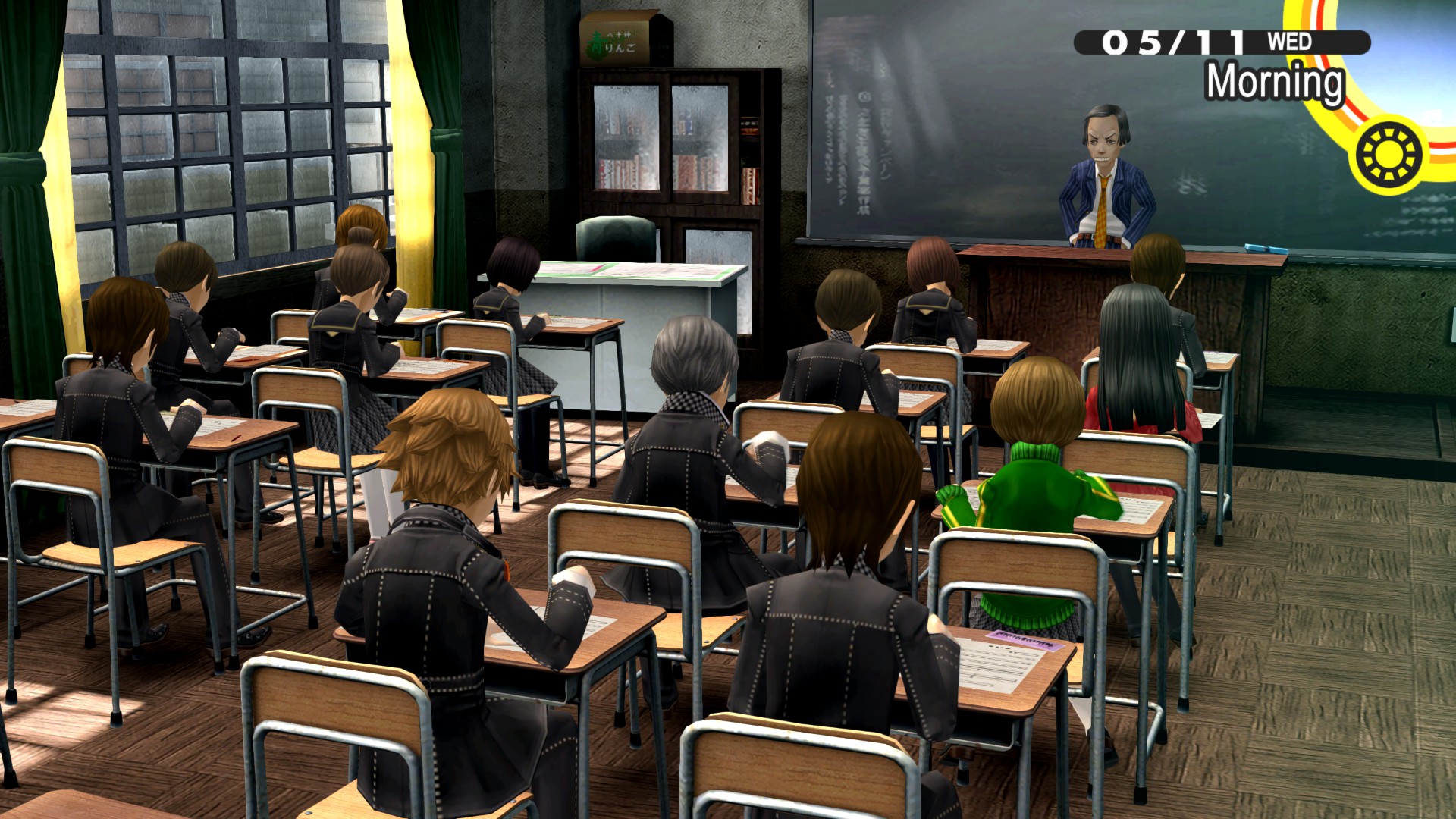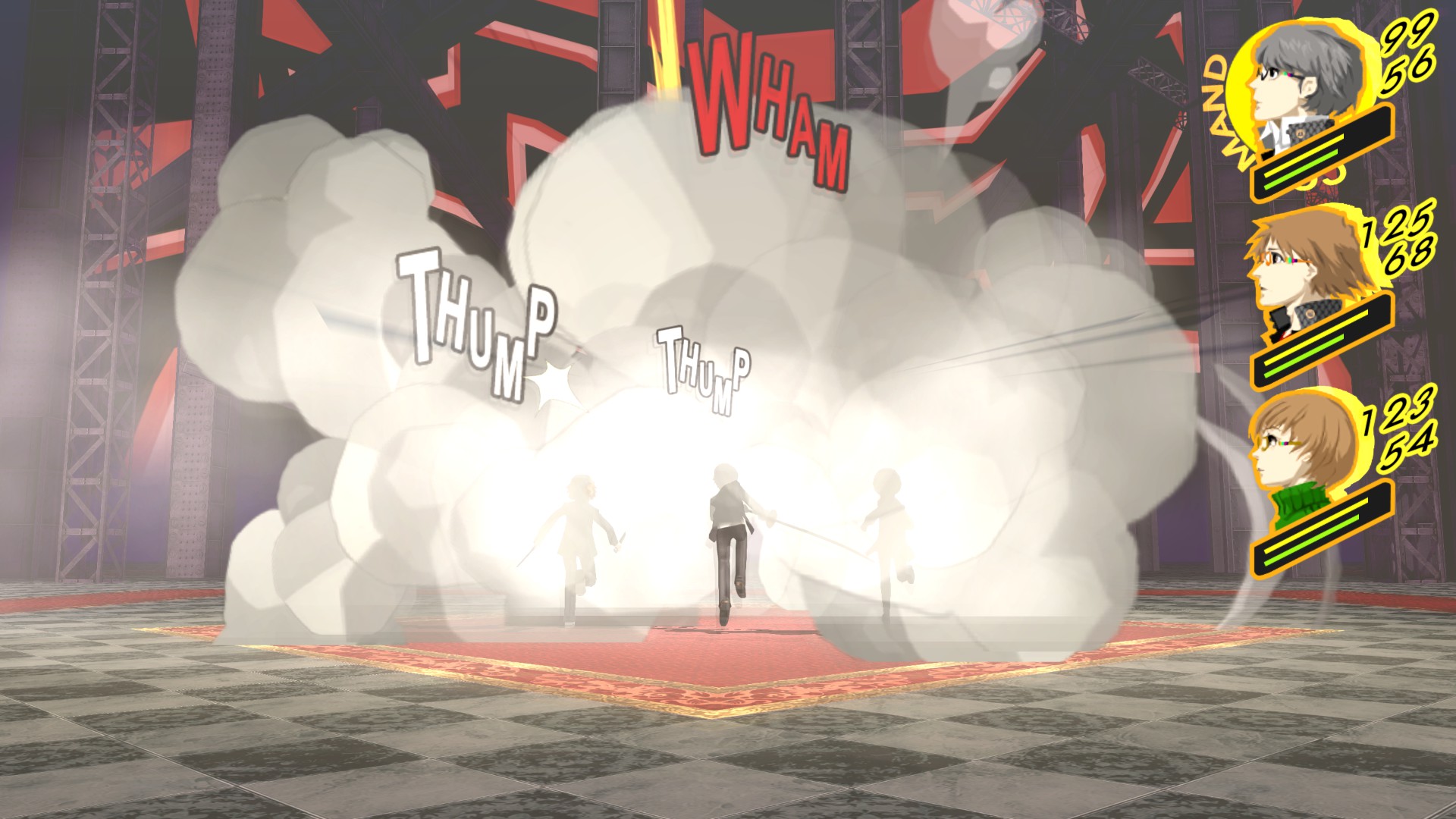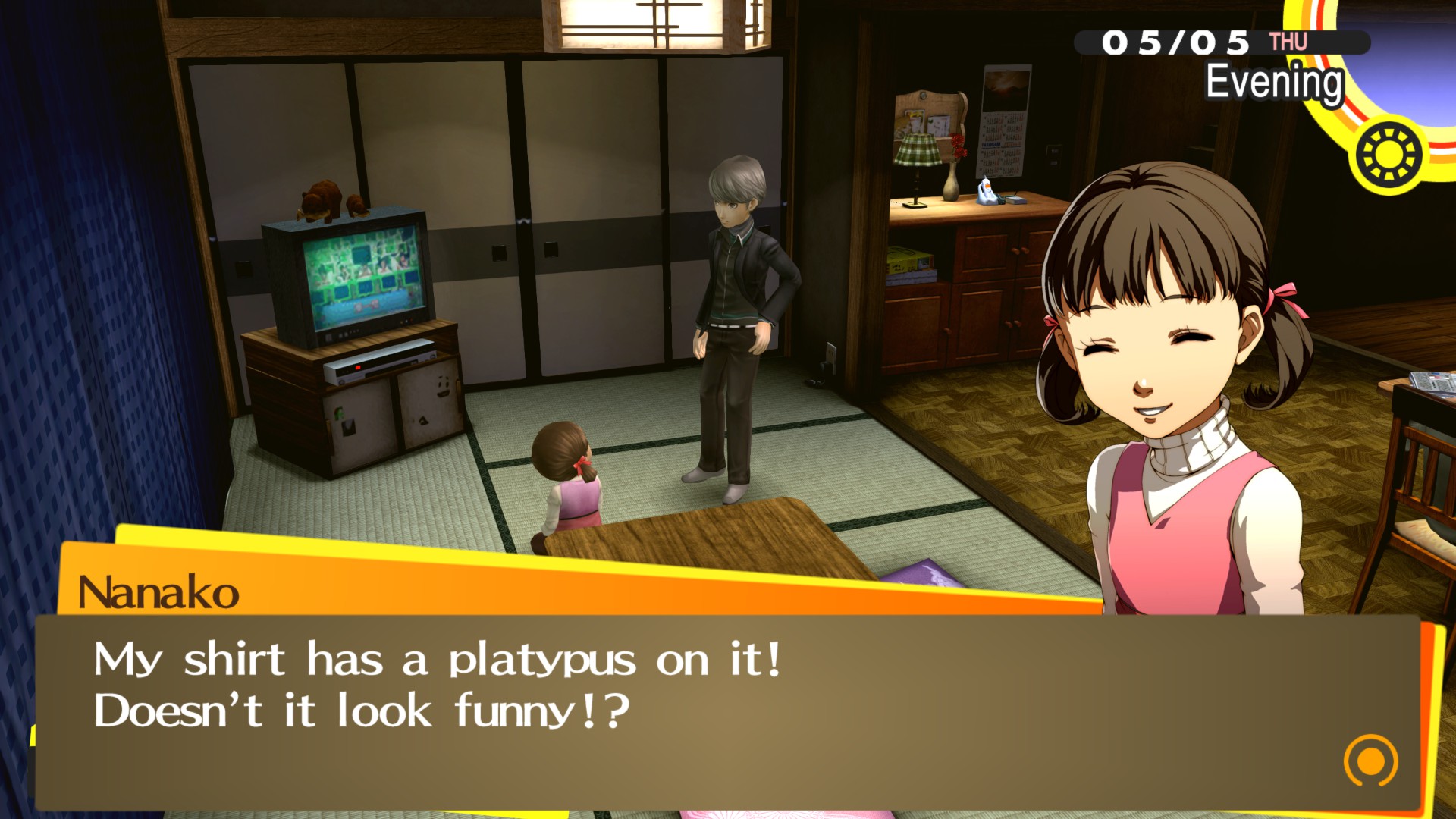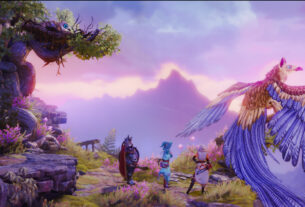
What is it? A port of the enhanced PS Vita version of one of the best PS2-era JRPGs
Expect to pay: $19.99/£19.99
Developer: Atlus
Publisher: Atlus
Reviewed on: Intel Core i3-8350K CPU, 12GB RAM, GeForce GTX 1060
Multiplayer? No
Link: Official site
Starting out at a new school is a difficult time for anyone. But the teenaged protagonist of Atlus’s sprawling JRPG has it particularly tough. Having moved from the bustle and bright lights of Tokyo to the supposed rural calm of Inaba, he’s barely unpacked his bags before a series of gruesome murders shocks the sleepy town. With his detective uncle rarely home to help him settle in, he uses his spare time to band together with a group of classmates, each holding latent supernatural powers, to investigate this disturbing phenomenon. Negotiating the pitfalls of adolescent school life while navigating fantastical dungeons filled with bizarre monsters sounds like a weird combination; the genius of Persona 4 Golden is how brilliantly it intertwines these two seemingly disparate ideas.
Even so, first impressions aren’t especially promising. This is, after all, a port of a port: it’s based on the eight-year-old PS Vita version, which was itself a refined edition of the 2008 PS2 original. As such, it’s showing its age visually, even if its stylish and evocative art design mostly compensates for its technical shortcomings. And it remains a slow starter: Golden streamlines the original’s infamously languid introduction, but it’s still a good couple of hours before the training wheels come off and you’re given full control over your schedule. You’ll need a bit of patience before you get to see what makes the game so special.
Eventually, you’ll be able to decide exactly what you do outside school hours, and it’s not long before you’ll find yourself spoilt for choice. Ah, the dilemmas that come with being the popular kid: do you stop by the music room for band practice, or head to the field for soccer training? To meet up with the boorish but well-intentioned Yosuke, or to hang out with the gregarious, steak-loving Chie?

The game sometimes follows you into lessons, where you’ll be invited to answer a multiple-choice question (occasionally to help your friends who either don’t know or haven’t been paying attention) for small boosts to your character’s social qualities. These in turn open up additional extra-curricular activities: with a high Knowledge stat, you’ll sail through exams, and have the option of taking on a part-time job as a translator to earn extra cash. Boost your Courage by finishing off a spicy dish at a Chinese diner, meanwhile, and eventually you’ll be brave enough to pay a late-night visit to the local shrine that’s rumoured to be haunted.
They’ll also boost your social links, which are your way of deepening your bonds with your schoolfriends. This unlocks extra dialogue options, but more importantly, feeds into the other half of the game. Each time one of your peers disappears, you have several days to prepare to save them before they’re gone forever. For each rescue attempt, you’ll venture inside a shadow world which is accessed through a television set—like Ringu in reverse. Here, you’ll explore the rooms and corridors of a series of multi-floor mansions, attacking patrolling shadows that transform into a range of outlandish creatures to be fought in turn-based combat.
You can attack with weapons made by the local blacksmith, but you’ll do more damage by summoning Personas: supernatural projections empowered by the social links you’ve made. Over time, you’ll amass dozens of these, gaining the ability to fuse two or more together to make stronger and more versatile Personas. You can transfer existing abilities to these directly, while skill cards can also be found to further diversify their move sets.

The turn-based combat is brisk and engaging without being especially innovative. You control protagonist Yu directly; other party members act independently, but can be guided by giving them preset tactics. Targeting an opponent’s elemental weakness lets you take another shot, while you can encourage your party to pile onto downed enemies (amusingly prompting them to rush in and disappear inside a traditional cartoon fight cloud). It’s straightforward stuff, and yet even incidental actions are imbued with greater meaning: when a friend extends a hand to pick you up off the floor, you think to the time you spent talking nonsense on the roof after school or over a beef bowl in the evening.
Their Personas, too, are a reminder of the struggle they’ve overcome; each victim’s dungeon represents an internal prison of their own making, where their darkest or most secret thoughts and impulses manifest as dangerous shadow entities. By rescuing each victim, you empower them not only to accept their flaws, but to welcome them into their hearts. Thus their individual Personas are born, giving them a facade to overcome their individual hardships.
All of this gives greater depth and nuance to the characterisation, which avoids the standard heroic archetypes of many a JRPG. While the game deals with dark subject matter, it’s not without moments of humour, and just as it appears to be settling into a familiar rhythm, you’ll find a break from routine to shake things up. It’s a game full of telling little details: when your young cousin Nanako parrots the advertising jingle from local department store Junes, it can seem irritating at first. But as you see her sitting in front of the TV alone night after night, sighing as she relays the news that her father is going to be late home from work yet again, this cheerful refrain is tinged with sadness.

At 60 hours or so, it’ll take you a while before you get to the bottom of what’s going on, but the school-term structure stops Persona 4 Golden from dragging. You’ll quickly settle into its moreish loop, enjoying your time in Inaba more and more as this small town and its inhabitants open up to you. Despite its fantastical elements, Persona 4: The Golden captures the challenges, heartaches and embarrassments of adolescence in a way that feels piercingly true, while giving you an absorbing mystery to solve as a bonus. It may be getting on a bit, but the belated arrival on PC of one of the finest contemporary JRPGs is extremely welcome.
Read our review policy
A bare-bones refit, but this remains a captivating JRPG, marrying slice-of-life drama with stylish demon battling.



